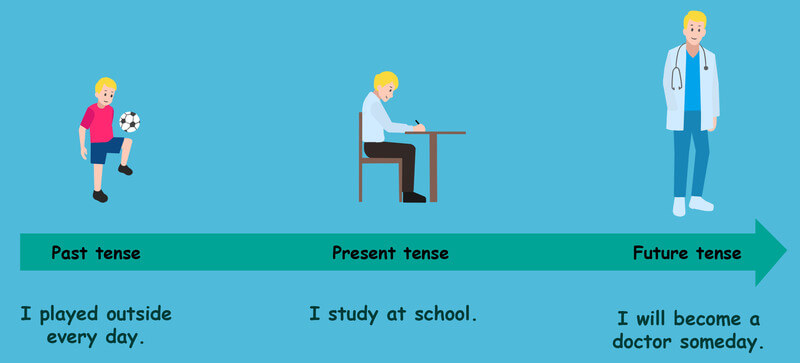Simple Future Tense
- Using "will" for simple future tense to predict future actions.
- Negative form of "will" is "will not" or "won't" for predictions that are not expected to happen.
- Structure: Subject + will/will not (won't) + base form of the verb.
We're going to learn how to use "will" in the simple future tense to talk about future predictions. This is a useful tool for speaking about things we believe will happen or will not happen in the future.
Using "Will" for Future Predictions
When we want to predict a future event that we believe is certain to happen, we use "will" followed by the base form of the verb. It's a straightforward way to talk about the future.
Grammar Rule: Subject + "will" + base form of the verb + (optional object).

Examples:
-
I will go to the store tomorrow.
Subject ("I") + "will" + base form of the verb ("go") + time expression ("tomorrow").
-
They will visit us next week.
Subject ("They") + "will" + base form of the verb ("visit") + time expression ("next week").
Negative Form of "Will"
To talk about future events that we believe will not happen, we use the negative form "will not" or the contraction "won't" before the base form of the verb.
Grammar Rule: Subject + will not (won't) + base form of the verb + (optional object).
Examples:
-
She won't watch the movie.
Subject ("She") + will not (won't) + base form of the verb ("watch") + object ("the movie").
-
We will not travel to Spain this summer.
Subject ("We") + will not + base form of the verb ("travel") + time expression ("this summer").
Remember, using "will" and "will not" (or "won't") is a simple way to express certainty about future actions or situations. It's commonly used in everyday English for making predictions about the future.
Practice this topic with the AI English Tutor
AI English Tutor will teach you the grammar and practice it with you in a conversation format. Plus, 100+ practice questions on this topic to cement your understanding.
Try ALULA for free on your phone or tablet








Do you have any questions about this lesson? Ask in the comment section, below.